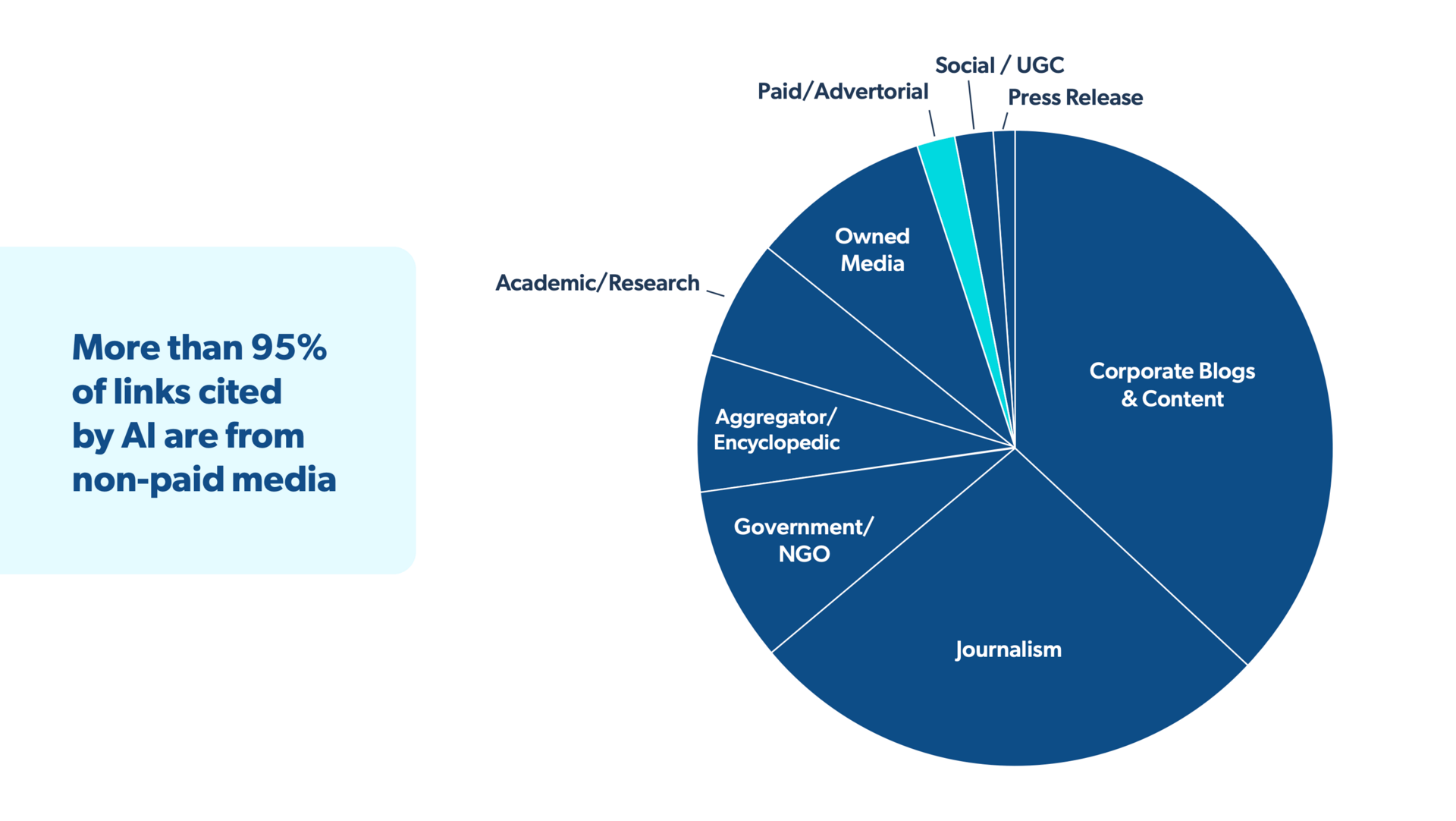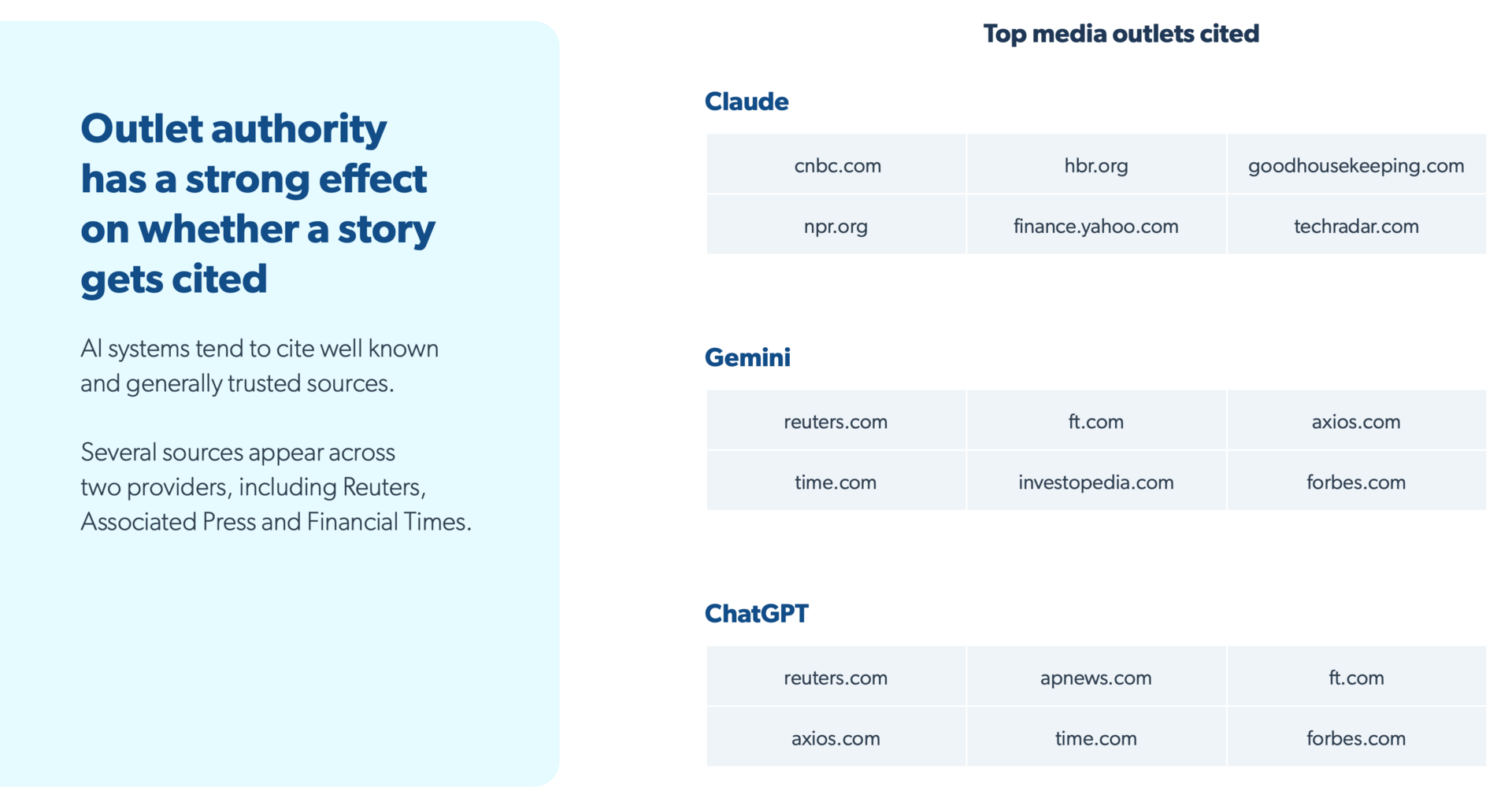- Enterprise AI Daily
- Posts
- Bots on the Beat, Policies on the Table, and China’s AI Chess Move
Bots on the Beat, Policies on the Table, and China’s AI Chess Move
What generative AI tools are actually reading, Trump’s new AI plan, and why DeepSeek’s open-source ambitions matter for U.S. enterprises

Today’s roundup pulls back the curtain on your AI assistant’s reading list, and it’s not exactly Pulitzer material. A new Muck Rack report reveals which sources GenAI tools rely on (spoiler: your local paper didn’t make the cut), and how enterprises can build trust with both bots and buyers.
Plus: Trump drops his AI “action plan,” OpenAI maps the future of productivity, and Singapore becomes the unlikely bridge in the U.S.-China open-source rivalry.
Let’s dig in.
Unlock the Power of AI With the Complete Marketing Automation Playbook
Discover how to scale smarter with AI-driven workflows that actually work. This playbook delivers:
A detailed audit framework for your current marketing workflows
Step-by-step guidance for choosing the right AI-powered automations
Pro tips for improving personalization without losing the human touch
Built to help you automate the busy work and focus on work that actually makes an impact.

Enterprise AI Daily / Created with Midjourney
What Chatbots Are Actually Reading (and Why It Matters)
Muck Rack’s latest Generative Pulse report analyzed over 1 million citations from ChatGPT, Claude, and Gemini to uncover what information GenAI tools really rely on, and what they ignore.
Whether you’re in PR, marketing, or enterprise ops, this dataset reveals how generative AI perceives your brand, your industry, and your content.
Here’s the top five things that stood out to us.
What stood out most to us: 95% of links cited by AI are from non-paid media.
This means: No ads, sponsored posts, native content, or “thought leadership” you paid LinkedIn $20K to boost. Just... editorial articles, public datasets, Wikipedia, Reddit, and old-fashioned earned media.
Enterprise takeaway: If AI can’t cite it, the enterprise can’t scale it. Treat PR and thought leadership as infrastructure. What shows up in Google is what shows up in AI.
The AI media diet is bland, and a bit biased.
The most commonly cited sources: New York Times, Wikipedia, Forbes, Reddit, and TechCrunch. Trade publications and local press barely register.
Enterprise takeaway: If your sector relies on niche press, don’t assume ChatGPT has read it. Enterprises may need to “feed” AI custom knowledge or fine-tuned context, especially for regulatory, industry-specific, or reputation-critical tasks.
AI behavior changes depending on the query.
Ask for facts and you get more journalistic citations. Ask for advice or opinion and you’ll get more Reddit and blogs. And Claude, notably, cites journalism far less than ChatGPT or Gemini, and Reuters appears 50x more in OpenAI’s results than Anthropic’s.
Enterprise takeaway: Not all AI is created equal, and neither are the prompts. Your team’s query style can determine what kind of answers they get. Train accordingly.
Outlet authority matters, but only up to a point.
While high-authority domains like Reuters and Axios are favored overall, only 15% of sources appear across multiple industries. Most citations are one-offs, and some sectors (like Healthcare or Energy) skew toward government or academic sources instead.
Enterprise takeaway: General prestige won’t get you everywhere. If you’re in a specialized industry, invest in the sources AI actually pulls from, especially if you want your expertise to be surfaced in enterprise-grade use cases.
Internal and owned content is creeping into AI results.
Press releases and brand-owned content are starting to show up more often. In the Energy and Hospitality industries, AI models cited internal or “owned” content 30–55% of the time.
Enterprise takeaway: Don’t wait for AI to “just know” your business. Feed it what it needs. Structured, indexable internal knowledge will matter more than ever.
In short: GenAI is a reflection of the internet we’ve given it. If your brand, expertise, or insights aren’t in the sources it cites, they won’t show up in the outputs that matter. And as enterprises increasingly rely on AI for search, summarization, and decision support, what gets indexed is what gets seen. It’s time to treat AI visibility the same way we treated SEO ten years ago: not as a nice-to-have, but as the foundation for staying relevant.

Enterprise AI Daily // Created with Midjourney
News Roundup
Trump’s AI plan draws a sharp contrast with Biden’s approach
The former president’s new AI “action plan” emphasizes deregulation, tech industry self-policing, and “freedom of speech” protections over guardrails. Expect debates over Section 230, China, and federal AI investments to heat up.
Read more →
OpenAI report identifies where AI will drive the most productivity
Sectors like customer service, accounting, and legal services top OpenAI’s “productivity frontier,” with automation potential of up to 80%. But knowledge work disruption doesn’t mean replacement, it means massive retraining.
Read more →
China’s DeepSeek drops open-source AI rival via Singapore
In a move straight from the geopolitical strategy playbook, DeepSeek open-sourced its “Brainstorm” model in Singapore, bypassing U.S. export restrictions. The model rivals GPT-4 on benchmarks and shows China’s evolving open-source tactics.
Read more →
TL;DR:
AI pulls mostly from high-authority, non-paid sources like NYT, Reddit, and Wikipedia
Enterprises with niche focus or limited press coverage need internal fine-tuning
Only 11% of comms pros trust GenAI outputs as-is
Two-thirds want their content indexed by AI tools
China’s playing 3D chess with open-source AI strategy
AI may sound all-knowing, but even bots have blind spots. As enterprise leaders, the job isn’t just using AI, it’s teaching it to see what matters to you.
Stay sharp,
Cat Valverde
Founder, Enterprise AI Solutions
Navigating Tomorrow’s Tech Landscape Together
Your Feedback = Our FuelHow was today’s newsletter? |


